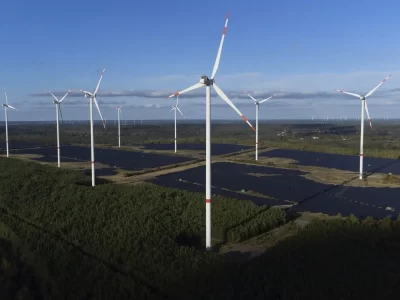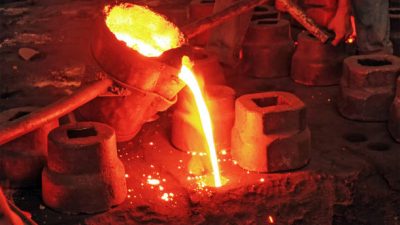The green economy is no longer a concept of the future—it’s the present and growing rapidly. As industries shift towards more sustainable models, the need for diverse, innovative, and inclusive leadership has never been more urgent. A critical aspect of this transformation is female talent recruitment in the green economy, which holds the key to more balanced and effective climate solutions.
In this blog, we explore why female representation matters, the challenges that exist, and how businesses can improve their recruitment strategies to lead the way in gender-inclusive sustainability.
Why Gender Diversity Matters in the Green Economy
Sustainability is as much a human issue as it is environmental. Diverse leadership leads to broader thinking, more inclusive policy design, and better financial performance. Numerous studies have shown that organisations with gender-diverse leadership teams outperform their counterparts in innovation, decision-making, and overall business resilience.
In the context of the green economy, which involves energy transition, sustainable infrastructure, climate finance, and cleantech, this diversity becomes even more critical. Female leaders often bring unique perspectives to problem-solving, risk assessment, and stakeholder engagement—core components of successful sustainability strategies.
Promoting female talent recruitment in green economy sectors is not simply a matter of fairness—it’s smart business.
The Current Landscape: Underrepresentation Persists
Despite progress, women remain underrepresented in green industries, especially at senior and executive levels. For instance:
- Women account for only 32% of renewable energy sector jobs globally.
- Representation drops significantly in leadership, board, and engineering roles.
- The pay gap and barriers to promotion persist, particularly in STEM-driven sustainability fields.
The situation reflects a missed opportunity, as the global transition to net-zero requires all available talent—regardless of gender. To accelerate this shift, gender-inclusive hiring must become a strategic priority.
Barriers to Female Participation in Green Sectors
Several systemic barriers continue to hinder the progress of women in green industries:
- Lack of STEM Role Models
Many women are discouraged from pursuing technical careers due to limited exposure to female leaders in science, technology, and engineering. - Cultural Stereotypes
Traditional perceptions often see green economy roles as more suited to men, especially in energy, manufacturing, and engineering-heavy roles. - Workplace Policies
Inflexible work environments and inadequate maternity and parental support can discourage women from entering or remaining in these industries. - Recruitment Biases
Gendered language in job descriptions, male-dominated interview panels, and unconscious bias can all deter female applicants.
Understanding these barriers is the first step in addressing them through more targeted and inclusive hiring practices.
The Role of Recruiters in Shaping the Future
Recruitment professionals have a critical role to play in driving change. Specialised executive search and talent acquisition teams focusing on sustainability are already seeing the benefits of gender-diverse placements.
Here’s how they can champion female talent recruitment in green economy roles:
- Craft Inclusive Job Descriptions: Use language that appeals equally to male and female candidates and clearly outline diversity values.
- Targeted Outreach: Connect with women in STEM networks, green business forums, and female leadership communities.
- Blind Screening Practices: Remove identifiers that could lead to bias during the early stages of candidate selection.
- Balanced Shortlists: Ensure gender-diverse candidates are included at every stage of the hiring process.
- Client Education: Help companies understand the ROI of inclusive hiring and the importance of a diverse workplace culture.
Policy-Level Support and Public Initiatives
Governments and industry bodies are beginning to acknowledge the importance of inclusive hiring in the green economy. Initiatives such as:
- The UN’s Gender-Responsive Just Transitions framework
- IRENA’s “Renewable Energy: A Gender Perspective” reports
- UK’s Women in Innovation Programme are actively supporting the movement towards gender equality in sustainable industries.
These initiatives are influencing hiring standards, reporting requirements, and company performance metrics, adding momentum to female talent recruitment in green economy sectors.
Benefits of Gender-Diverse Green Leadership
Companies that succeed in hiring and retaining female talent in sustainability-related roles report several tangible advantages:
- Enhanced innovation through a broader range of perspectives
- Greater team collaboration and empathy, especially in stakeholder-facing roles
- Improved ESG scores and brand perception
- Access to a wider talent pool in a highly competitive market
- Better representation of the communities served by green initiatives
These benefits are no longer speculative—they are well-documented, measurable outcomes.
How Companies Can Drive the Change
- Set Gender Equity Goals: Include measurable targets for female representation in sustainability roles and track progress regularly.
- Foster Inclusive Culture: Build an environment where all employees feel valued, safe, and heard.
- Offer Leadership Training: Develop programmes tailored to helping women progress into senior roles within green industries.
- Partner with Purpose: Collaborate with organisations and recruiters who specialise in diversity and sustainable hiring.
- Celebrate Female Leaders: Promote stories of successful women in green economy roles to inspire and attract future talent.
Final Thoughts
The transition to a sustainable future depends not only on technology and investment but on inclusive, visionary leadership. By focusing on female talent recruitment in green economy sectors, businesses can build stronger, more resilient teams capable of tackling the complex challenges of climate change.
Championing female representation is not just an ethical responsibility—it’s a strategic advantage. The organisations that embrace this truth will lead the green transition with both innovation and integrity.
Also Read: What Makes Executive Recruiters Vital for Sustainable Finance Growth



















